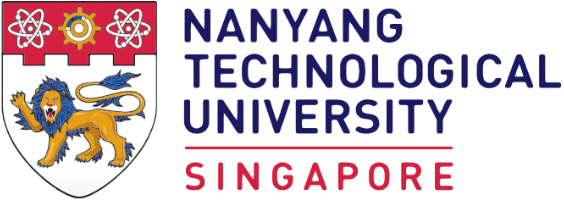
 ICARCV 2024
The 18th International Conference on Control,
ICARCV 2024
The 18th International Conference on Control,Automation, Robotics and Vision
December 12-15, 2024. Dubai

 ICARCV 2024
The 18th International Conference on Control,
ICARCV 2024
The 18th International Conference on Control,Automation, Robotics and Vision December 12-15, 2024. Dubai |
Plenary Lectures |
|
Plenary Talk 1 (Dec. 12)
|
|
Abstract: In this talk, I will present the development of a new class of marine robots: All-Terrain AUVs. These Autonomous Underwater Vehicles (AUVs) are poised to transform underwater data collection, pushing the boundaries of what is possible. Engineered for ultra-high-quality data collection, hydrodynamic efficiency, and unparalleled maneuverability, they represent a game-changer in underwater robotics. I will trace their evolution, which began with the pivotal research question of “How can we learn from nature to enhance robot mobility?” and progressed through fundamental research towards innovation and development. |
|
Biography: Kristin Y. Pettersen is a Professor of Engineering Cybernetics at the Norwegian University of Science and Technology (NTNU) and Adjunct Professor at the Norwegian Defence Research Establishment. She co-founded the subsea robotics company Eelume AS, where she was CEO 2015-2016 and is now a board member. She was awarded an ERC Advanced Grant 2020 and received the IEEE CSS 2020 Hendrik W. Bode Lecture Prize. She is IEEE CSS Distinguished Lecturer, a Fellow of IEEE and AAIA, a member of the Norwegian Academy of Technological Sciences, and a member of the Academy of the Royal Norwegian Society of Sciences and Letters. Her main research interests are in the development of methodologies for the analysis and control of autonomous robots, with an emphasis on marine robotics and snake robotics. |
|
|
|
Plenary Talk 2 (Dec. 13)
|
|
Abstract: Cyber-physical-human systems tightly integrate physical and computational components with human and social interactions. These systems form the backbone of critical sectors such as transport, energy, buildings, and industry, and are rapidly evolving with the large-scale adoption of machine learning and automation. This talk will address the challenges in modeling, analyzing, and designing controllers for such systems. It will explore how social networks within these systems can lead to emergent behaviors and enable predictable collective decisions. We will present mathematical frameworks leveraging concentration inequalities and random graph theory, which offer design trade-offs with proven accuracy. Experimental results from the KTH Live-In Lab will illustrate a holistic design approach that promotes sustainable living in smart buildings. This presentation represents collaborative work with students, postdocs, and partners in academia and industry.
|
|
Biography: Karl H. Johansson is Swedish Research Council Distinguished Professor in Electrical Engineering and Computer Science at KTH Royal Institute of Technology in Sweden and Director of Digital Futures. He received MSc degree in Electrical Engineering and PhD in Automatic Control from Lund University. He has held visiting positions at UC Berkeley, Caltech, NTU among other institutions. His research interests are in networked control systems and cyber-physical systems with applications in transportation, energy, and automation networks. He is Vice President IEEE Control Systems Society, member of IFAC Council, and Immediate Past President of the European Control Association, and he has served on the IEEE Control Systems Society Board of Governors and the Swedish Scientific Council for Natural Sciences and Engineering Sciences. He has received several best paper awards and other distinctions from IEEE, IFAC, and ACM. He has been awarded Distinguished Professor by Swedish Research Council, Wallenberg Scholar with the Knut and Alice Wallenberg Foundation, Future Research Leader from the Swedish Foundation for Strategic Research, the triennial IFAC Young Author Prize, IEEE Control Systems Society Distinguished Lecturer, and IEEE Control Systems Society Hendrik W. Bode Lecture Prize. He is Fellow of the IEEE and the Royal Swedish Academy of Engineering Sciences. |
|
|
|
Plenary Talk 3 (Dec. 14)
|
|
Abstract: Vision is the primary sensor for humans to understand the world and carry out motion or tasks. To work intelligently and robustly in natural environments like humans, vision-based perception and vision-based action planning and execution are crucial for robots. This talk presents technical challenges in robotic 3D visual perception and vision-based robotic manipulation, and introduces our latest work in the topics. In particular, we will present our latest results on 3D reconstruction of objects or environments using structured lights, omnidirectional cameras, single or stereo camera, and videos, 3D perception such as point-cloud registration and objects’ pose estimation, and robotic manipulation/grasping of objects including soft objects using 3D visual information. Applications of the technologies in manufacturing, logistics and healthcare will be introduced as well.
|
|
Biography: Yun-hui Liu received B. Eng. degree in Applied Dynamics from Beijing Institute of Technology, M. Eng. degree in Mechanical Engineering from Osaka University, and Ph.D. degree in Applied Mathematics from the University of Tokyo. After working at the national Electrotechnical Laboratory of Japan as a Research Scientist, he joined The Chinese University of Hong Kong (CUHK) and is currently Choh-Ming Li Professor of Mechanical and Automation Engineering, the Director of the CUHK T Stone Robotics Institute, and the Director/CEO of Hong Kong Centre for Logistics Robotics funded by the InnoHK clusters of the HKSAR government. He has published more than 500 papers in refereed journals and conference proceedings and was listed in the Highly Cited Authors (Engineering) by Thomson Reuters. His research interests include vision-based robotics, machine intelligence and their applications in manufacturing, logistics, healthcare and constructions. Prof. Liu has received numerous research awards from international journals and international conferences in robotics and automation, and from government agencies. In recent years, he has been actively transferring robotics technologies developed at university labs to industries, and co-founded VisionNav Robotics, CornerStone Robotics, etc. He was the Editor-in-Chief of Robotics and Biomimetics and served as an Associate Editor of the IEEE Transactions on Robotics and Automation. He is Fellow of IEEE, HKIE and HKAES. |